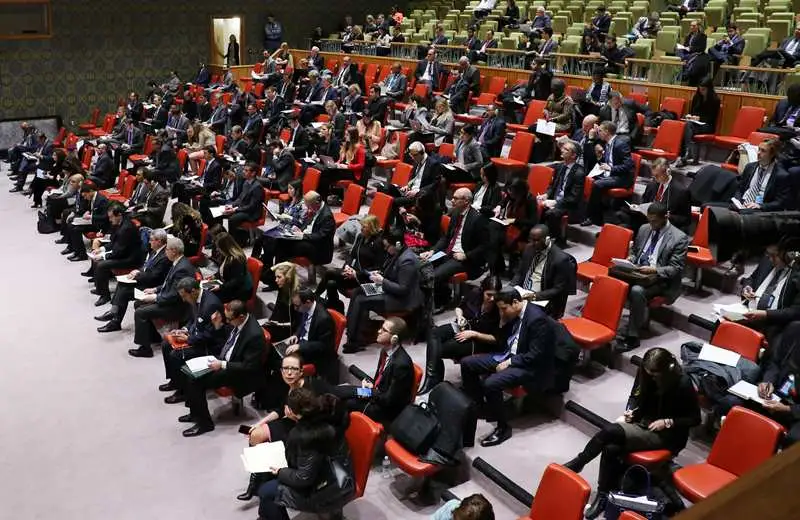Kazakhstan chairs UNSC open debate on the Middle East

Special Coordinator for the Middle East Peace Process Nikolay Mladenov briefed the Council on the current situation in the region focusing on Iraq, Syria, Yemen and the Israeli-Palestinian conflict.
The debate specifically focused on the Israeli-Palestinian conflict, including the status of Jerusalem, and in this regard, the members of the UNSC urged the leaders of the two nations to follow the international agreements, taking into account the right of the Palestinians to statehood and Israel's right to security.
The members of the Security Council also called on the sides to resume bilateral negotiations without preconditions, adding that their ultimate goal should be the restoration and facilitation of the peace process in accordance with Security Council resolutions, the land-for-peace, the roadmap for peace, and the Arab peace initiative.
The Council stated that both sides should refrain from provocations and take appropriate steps for the speedy resumption of direct negotiations and fulfilment of their respective commitments. The delegations noted the need to identify mutually acceptable principles for the promotion of the peace process, as well as the development of the concept of future negotiations and the mechanisms of implementation of the peacefully coexisting neighboring states format.
The majority of the delegations that took part in the debate expressed their concern over the U.S. cutting aid to the UNRWA, which covers 50 percent of the needs of Palestinian refugees in the Middle East. This step, according to many speakers, will worsen the already difficult situation for the refugees and lead to their radicalization.
In his speech, Permanent Representative of Kazakhstan to UN Kairat Umarov reaffirmed his country's commitment to the two-state solution and stressed the necessity to implement the provisions of the UN Security Council Resolution 2334 regarding the Israeli settlements in Palestinian territories. He also called on both sides to avoid unilateral actions that could delay the achievement of an early and fair resolution of the conflict.
The Kazakh delegation reminded the delegates that in his speech at the UNSC Security Council meeting on the theme of non-proliferation of weapons of mass destruction: confidence-building measures, Nursultan Nazarbayev called on world leaders to show political will and courage to resolve the complex issues on the international agenda through confidence-building measures, adding that it is one of the main conditions for achieving lasting peace and security in the world, including in the Middle East.
In the broad context of the briefing on the situation in the Middle East, the Kazakh delegation noted the country supports the sovereignty and integrity of Iraq and stressed the importance of promoting a comprehensive political dialogue between various groups in the country, as well as between Kurdish Erbil and Baghdad.
With regard to Yemen, the Kazakh delegation stressed that there is no alternative to a political solution of the conflict and stressed the need to preserve all modalities of aid delivery to the civilian population of Yemen.
Astana also welcomed Lebanon setting specific deadlines for parliamentary elections, which should contribute to the stability and political consolidation of society.
As for the Libyan issue, the Kazakh side called on the Libyans to stick to dialogue and confidence-building measures in order to create an effective government of national unity.
